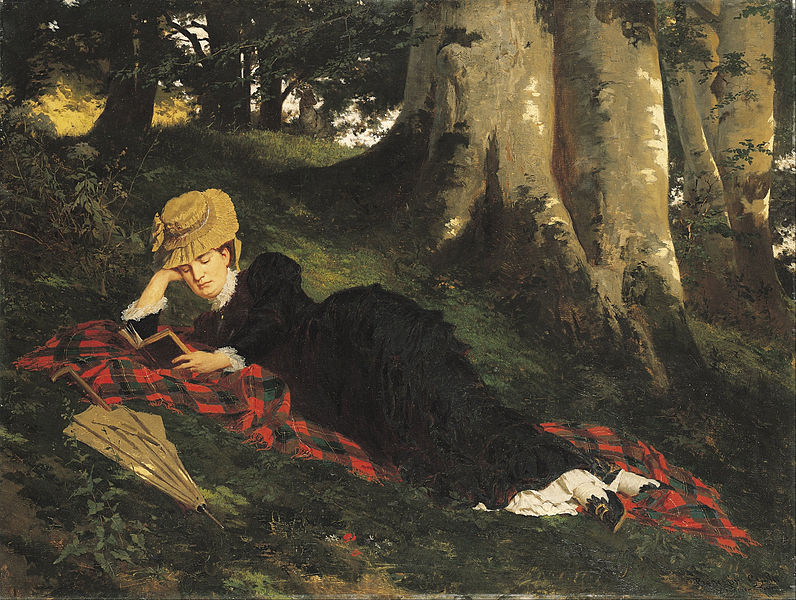
You've written your book, typed 'the end', and are now looking for a
place to publish.
STOP!
Is your book ready?
Of course, you'll need to edit, re-edit, and edit
some more before you have a submittable project. But there are some things you
want to pay special attention to before hitting send on your submission or
query to a publisher.
Here are some helpful hints that will get your book read with TirgearrPublishing:
First, every publisher's guidelines are different, so it's important
that you follow each publisher's specific guidelines, even if it means
tailoring your basic submission. Tirgearr Publishing strives to make the
submission process easy, so be sure to take a moment to ensure your submission
is not only formatted correctly, but that the story is actually what we're
looking for.
Keep in mind that editors can read dozens of books per week, so the more
well-presented your submission is, the better your chances that our team will
look at your submission, and the easier it will be on our team to evaluate it.
Here are some key elements we look for:
 |
| "I say, that's a blood good opening line!" |
A Strong and Powerful Opener
The first line or lines must pull in the reader immediately and make
them ask, "What happens next?" Create first lines that grab us and
pull us into the story. This can be dialogue or dramatic narrative. Just don't
get bogged down by too much of either. Find a good balance and continue on that
high throughout the story.
Narrative Example: Treated As Murder by Noreen Wainwright - It was all wrong, a servant bringing such a
thing as this on a silver plate.
Immediately, we want to know what was delivered on that silver plate. We
already sense the era, with the servant bringing something on a silver plate
(Downton Abbey perhaps?), but what could that thing be?
Dialogue Example: Machines of the Little People by Tegon Maus - “I’m sorry, Ben. We’ve looked everywhere.”
Again, the drama leaps from the page. What or who are they looking for?
We instantly know Ben has lost something, or someone, and that's it's important
if 'we' (numerous people) had been looking for it.
However you open your first chapter, it must be powerful.
If the first line isn't overly dramatic, ensure the opening paragraph
is.
Narrative Example: Bound to the Highlander by Kate Robbins - A horse’s scream pierced the air sending a
chill down her spine. Brèagha. Aileana Chattan quit pacing and dashed to the window.
Thank God. They were home at last.
This longer opening passage is short, but it conveys a sense of era,
urgency, and personal anxiety, and that there had been a journey for someone
and now that person has returned . . . and with what news?
Dialogue Example: Awakening by Kemberlee Shortland - “Take it off, Ysbail.” She stood her ground,
shoulders back, gazing into her husband’s black eyes, daring him to make her.
Once more, we see how strong dialogue and narration create a powerful
opening. We instantly see this is a strong woman who is refusing her husband's
demand. Also, what is it she’s wearing her husband objects to?
A powerful opening will certainly ensure editors will want to read more.
Good editors can tell a book's worth just on the opening pages. You don't want
to spend all of your time just on the opening few pages, or first three
chapters. You must have the same care all through the book, to the last page.
If the first few pages are attractive, our editors will continue reading
through to the end of the book. If the quality falls down after those few pages
or first three chapters, our team can tell right off that the same care has not
been given to the full manuscript. So be sure to edit thoroughly through all
the pages.
 |
| Sir Arthur Thomas Quiller-Couch |
Ensure your perspective on the story
is unique
Poet and novelist, Sir Arthur Thomas Quiller-Couch. is credited with saying there are only
seven plots in writing:
1 ) person against person, aka character vs
character - This is
traditional good vs evil story. Example: Batman vs The
Joker/Riddler/Penguin/etc. This plot can also include LGBT stories with same
sex protagonists.
2) man and woman - Opposite sex characters working with each
other for a common goal: the traditional romance story. Also working against
each other. Example: Batman and the Cat Woman.
3) person against him/herself - The protagonist has a personal
conflict to overcome. Example: Clark Kent vs Superman.
4) person against nature - The protagonist alone in nature
and must survive on his/her own. Example: The Grey starring Liam Neeson...alone
in the woods, defending himself against the elements and the wolves who track
him.
5) person against society - As above, but the struggle is
with society. Example: Terminator, as Sarah Connors must struggle with society
if she's going to save herself, and humanity.
6) person against God - Personal religious struggle, loss
of faith, gaining faith... Example: The Da Vinci Code, as Robert Langdon's
faith is tested through a series of puzzles.
7) person caught in the middle - Pawn in the drama of others.
Example: Romeo and Juliet by William Shakespeare. This couple is caught in the
middle of the feud between their family's.
We've seen these themes in thousands of books we read, but it's how we
tell each story that makes our story unique. To do this, we must read. A lot.
See how others tackle those seven plot elements, then see how you can make your
story stand out. Make yours unique. Create a perspective in your story that no
one else has done, or hasn't been done in a very long time, then refresh it
with your own creativity.
Create your own time and place
If you're world-building, this needs to be apparent quickly when the
first page is opened. Don't be afraid to cross genres. Steampunk is a good
example. Also vampire romances, shifter stories, futuristics. Think Cowboys and
Aliens is a good example of crossing genres...western sci fi! Push the
boundaries of traditional writing and find your own niche, then pull in the
reader with your opening lines.
One way to do this is with your unique author voice, or style of
writing. Over time, with experience, and even guidance from your editor, you
will hone your own style of writing. This is known as your voice...how you tell
your story. It must be convincing to your reader, which makes your stories
believable...even if your hero is a cowboy hunting martians, or a scientist
looking for descendants of Jesus.

You also need believable characters
Your characters, all of them, must be well-fleshed. By that, we mean,
they must seem like real people. That when we read them on the page, we're
instantly endeared to them and care about their future. These are characters we
either want to know in real life, or instantly connect with in some way...even
the bad guys and characters we love to hate.
A tip on creating believable characters is to take a lesson from old
school writers who will take a notepad and pencil into a public place, sit and
observe, making notes on behavior, conversation, body language, etc. Bring
those things back to your writing.
Be sure your work is well-structured
Think of story structure as the foundation of your whole story. Often we
write down a story as it’s created in our head, but when we read it again, we may
find something isn’t quite right. Your protagonist should have done this
earlier in the book or said that later. Or there’s something missing altogether
in the plot. Whatever it is that helps your story flow better, don’t be afraid
to move things around so that the book is structurally sound. Even if you have
well-fleshed characters, a unique story, and a strong voice, if the structure
of the story isn’t strong enough, your project will collapse.
 |
| "This story pulled me in from page one. I've been lying here reading for three days now!" |
And don’t discount strong research
Everything in a story needs research, especially if you’re world
building and creating a time and place that’s not the one you live in. And I’d
bet that even if you’re writing a story local to where you live, you’ll still
nee to ‘check out a few things’ before writing them. Good research will shore
up your structure, so be sure to give it the credit it deserves.
Here are some other tips on getting an editor's attention:
Only when you have a well-presents manuscript that has undergone your
strict attention to these things will you be ready to hit SUBMIT for any
submission.
Good luck!

